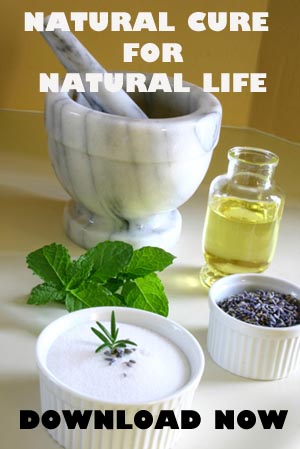what is a natural cure for dandruff?
August 18, 2011 by admin
Filed under Common Questions
Question by bigjoss2k: what is a natural cure for dandruff?
I dont want suggestions on chemical shampoos.. Im looking more along the lines of natural cures.
Best answer:
Answer by Adam C
This isn’t really natural, but it’s a household cure…Use Dawn or another similar dish soap when washing your hair. It helps your scalp.
What do you think? Answer below!



Found some stuff you can do yourself that’s natural and you don’t need chemicals. good luck!
Dandruff treatment using Fenugreek Seeds
The use of fenugreek seeds is one of the most important remedies in the treatment of dandruff. Two tablespoons of these seeds should be soaked overnight in water and ground into a fine paste in the morning. This paste should be applied all over the scalp and left for half an hour. The hair should then be washed thoroughly with soap-nut (ritha) solution or shikakai.
Dandruff treatment using Lime
The use of a teaspoon of fresh lime juice for the last rinse, while washing the hair, is another useful remedy. This not only leaves the hair glowing but also removes stickiness and prevents dandruff.
Dandruff treatment using Green Gram Powder
A valuable prescription for removal of dandruff is the use of green gram powder. The hair should be washed twice a week with two tablespoons of this powder mixed with half a cup of curd.
Dandruff treatment using Beet
Beets have been found useful in dandruff. Both tops and roots should be boiled in water and this water should be massaged into the scalp with the finger tips every night. White beet is better for this purpose.
Dandruff treatment using Snake Gourd
The juice of snake gourd has been found beneficial in the prevention and treatment of dandruff. The juice should be rubbed over the scalp for this purpose.
Dandruff treatment using Other Remedies
Dandruff can be removed by massaging the hair for half an hour with curd which has been kept in the open for three days, or with a few drops of lime juice mixed with amla juice every night, before going to bed. Another measure which helps to counteract dandruff is to dilute cider vinegar with an equal quantity of water and dab this on to the hair with cotton wool inbetween shampooing. Cider vinegar added to the final rinsing water after shampooing also helps to disperse dandruff.
Well, what my mother used to make me do was to wash my hair with lemon juice. Leave it in for 15 minutes and then wash it… or Babosa (aka Aloe Vera) , the actual plant, mash it up and apply to your hair. Although, my dandruff is controlled by zinc pyrithione shampoo.
In Luke warm Mustard oil add juice of one fresh lemon in the evening and message it on your hair root the same night leave it over night than next morning wash your hair with any shampoo you use. Do it daily for seven days. In the next week do it 3 times for two weeks after that once in a week will serve your purpose. The next natural way is take some curd and keep in sun light for 3-4 hrs. Let it ferment than in the night apply it on the roots of your hair. Leave it over night. Next morning wash with any shampoo you wish. Routine will be same as stated above.
Recommendations:
1. Eat a diet consisting of 50-75% raw foods. Eat soured products such as yogurt.
2. Avoid fried foods, dairy products, sugar, flour, chocolate, nuts, and seafood.
3. Before washing your hair, add about 8 talbespoons of pure organic peanut oil to the juice of half a lemon and rub the mixture into your scalp. Leave it on for 5-10 minutes, then shampoo.
4. Try rinsing your hair with vinegar and water instead of plain water after shampooing. Use 1/4 cup vinegar to 1 qt. of water.
5. If antibiotis are prescribed, take extra B-complex witamins. Also take an acidophilus supplement to replace the “friendly” bacteria that are destroyed by antibiotics.
6. Do not pick or scratch the scalp. Make sure to wash your hands frequently, and use a non-oily shampoo. Use natural hair products that do not contain chemicals. Avoid using irritating soaps and greasy ointments and creams.
7. Do not use a shampoo containing selenium on a daily basis, even if it aids in controlling damdruff.
HERBS:
1. An infusion of chaparral or thyme may be used as a hair rinse.
2. May benefit from taking dandelion, goldenseal, and red clover.
(caution): Do not take goldenseal on a daily basis for more than one week at a time, and do not use it during pregnacy. If you have a history of cardiovascular disease, diabetes, or glaucoma, use it only under a doctor’s supervision.
Here in the Philippines we have what we call gugo.It’s a natural shampoo from coconut tree part. I tell you it’s very effective. My brother used it when he had a vry serious dandruff infection and it worked for him.
Gugo is a traditional shampoo way way back in time.
But it is so effective that commercial shampoo makers came out with shampoo variations with gugo.
Aloe vera is also a very effective natural healling agent for dandruff. But beware because improper use and extraction may cause harm than good.
It is a stemless or very short-stemmed succulent plant growing to 80-100 cm tall, spreading by offsets and root sprouts. The leaves are lanceolate, thick and fleshy, green to grey-green, with a serrated margin. The flowers are produced on a spike up to 90 cm tall, each flower pendulous, with a yellow tubular corolla 2-3 cm long.
A. vera’s beneficial properties may be attributed to mucopolysaccharides present in the inner gel of the leaf, especially acemannan (acetylated mannans). An injectable form of acemannan manufactured and marketed by Carrington Laboratories as Acemannan Immunostimulantâ„¢ has been approved in the USA for treatment of fibrosarcoma (a type of cancer) in dogs and cats after clinical trials. It has not been approved for use by humans, and although it is not a drug its sale is controlled and it can only be obtained through a veterinary doctor.
Cosmetic companies add sap or other derivatives from A. vera to products such as makeup, moisturisers, soaps, sunscreens, shampoos and lotions, though the effectiveness of Aloe vera in these produces remains unknown. A. vera gel is also alleged to be useful for dry skin conditions, especially eczema around the eyes and sensitive facial skin.
An article published in the British Journal of General Practice suggests that A. vera is effective at treating athlete’s foot [citation needed]. The topical application of A. vera is not an effective preventative for radiation-induced injuries.
Whether or not it promotes wound healing is unknown, and even though there are some promising results, clinical effectiveness of oral or topical A. vera remains unclear at present.